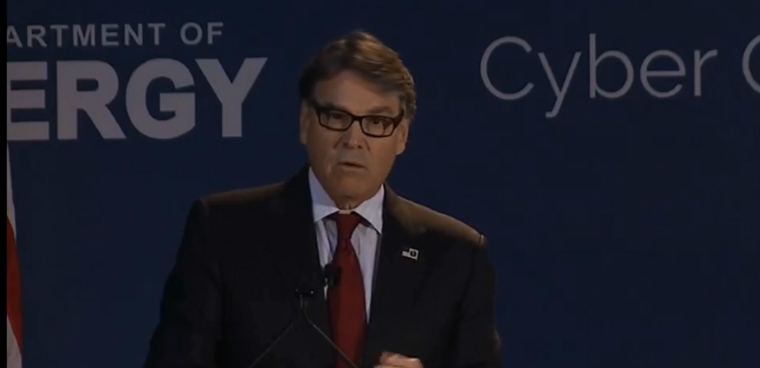DOE looks to double number of electric utilities sharing cyber threat data
Energy Secretary Rick Perry announced big plans for expanding participation in DOE's Cybersecurity Risk Information Sharing Program.

Energy Secretary Rick Perry in Austin, Texas, in June 2018.
The Energy Department’s cybersecurity information sharing program is expanding its network of electric utilities by year’s end.
Energy Secretary Rick Perry, speaking at the Department of Homeland Security’s July 31 National Cybersecurity Summit in New York City, said DOE hopes to double the number of utilities that share cyber threat information.
“We’re aiming this year to double the number of electric utilities in our CRISP -- Cybersecurity Risk Information Sharing Program,” Perry said during a panel with telecom and energy industry CEOs that was led by DHS Secretary Kristjen Nielsen.
Perry alluded to the hundreds of Russian energy sector victims of cyber intrusion, saying that things would have been worse if it weren’t for DOE’s collaboration with the private sector.
“It was due to that close collaboration that we were able to identify a really dramatic event last year, publicly reported in the last week, [of] Russian intrusions into our energy system,” Perry said. “Had we not had this working relationship with our private-sector partners, it would most likely have gone unfounded to a great detriment.”
Perry also noted the department’s increased focus on cybersecurity, primarily standing up the Cybersecurity of Energy Security and Emergency Response (CESER) office in the last year and its new ACES initiative, which stands for Accelerating Cybersecurity in the Energy Sector “to enhance our preparedness and response to threats.”
Perry mentioned DOE’s use of test grids to simulate cyber intrusions and “break things” in the name of infrastructure protections.
“We’re leading by example, by strengthening protection and response capabilities for our own power marketing administrations that fall under the DOE’s supervision,” Perry said.






